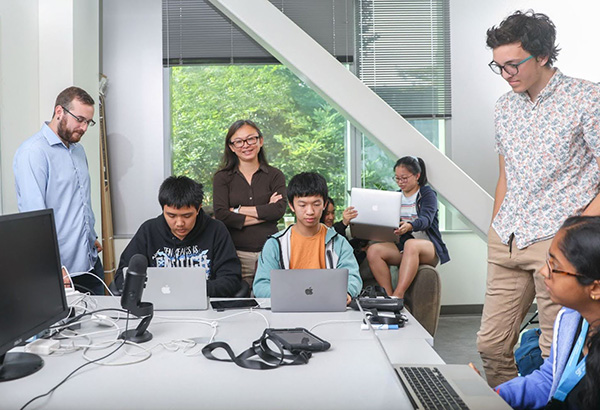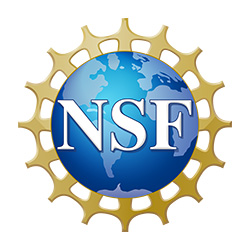Campus News
UC Santa Cruz named a U.S. National Science Foundation’s Innovation Corps Hub for the Northwest Region
UC Santa Cruz has been selected as one of eight partner institutions in the newly established U.S. National Science Foundation’s Innovation Corps (I-Corps) Hub for the Northwest Region.


UC Santa Cruz has been selected as one of eight partner institutions in the newly established U.S. National Science Foundation’s Innovation Corps (I-Corps) Hub for the Northwest Region. The campus program, which will be managed by the Innovation & Business Engagement Hub, aims to advance the translation of deep technologies into societal and economic impact.
UC Santa Cruz is one of five UCs involved in the new Hub, which also includes UC Berkeley (the lead institution), UC San Francisco, UC Davis, and UC Irvine, as well as Oregon State University, the University of Washington, and the University of Alaska, Fairbanks. Even though the Northwest Region Hub spans the largest geographic area in the program, the partner institutions are well aligned to deliver valuable programming at their campuses and across the entire Hub.
Vice Chancellor for Research John MacMillan will act as Principal Investigator at UC Santa Cruz.
“This new program will allow the university to build capacity amongst its innovative researchers and enhance its ability to drive the implementation and adoption of innovations resulting from the university’s groundbreaking research and discoveries,” MacMillan said.
UC Santa Cruz was previously an I-Corps site. More recently, UCSC has been collaborating with the UC Berkeley Bay Area I-Corps Program through the Innovation & Business Engagement Hub’s Lean Launchpad Workshop Series and team access to regional customer discovery training. One of the goals of these training programs is to advance eligible participants to the national I-Corps Teams program, which provides them with immersive training and funding to support customer discovery and validation efforts. Since 2012, more than 15 UC Santa Cruz teams have participated in this program, several of which have gone on to establish a new startup company to commercialize their innovations.
Sri Kurniawan, Baskin Engineering Associate Dean for Research, who will be serving as Faculty Lead for the new program at UC Santa Cruz, participated in both the regional customer discovery training and I-Corps Teams alongside a group of her students that ultimately went on to found Immergo Labs Corp., which so far has received funding from NSF Small Business Innovation Research (SBIR) Phase I and II as well as angel investors.
“The training and resources provided by these programs were highly beneficial to me as a researcher and to my students as emerging entrepreneurs,” Kurniawan said. “They helped us evaluate the commercial potential of our innovation, explore an initial business model, and pursue non-dilutive NSF SBIR funding to further develop the technology. Now that UCSC is a hub, we hope that more of our faculty and students will take advantage of these programs.”
As part of the Northwest Region Hub’s work, the universities will work together to reduce the time and risk associated with translating top research from lab to market while expanding educational and economic opportunities throughout the region.
“Through education, evidence, and experience, the hub at UC Santa Cruz will drive the creation of sustainable, scalable science and technology-based startups with national impacts,” said Ryan Sharp, assistant vice chancellor of innovation & business engagement.
The Hub will also raise awareness of the value of entrepreneurship among faculty and students, using a variety of programs designed for inclusivity and meeting people where they are, be it entrepre-curious skill builders or fully committed founders.
To learn more, please reach out to the UC Santa Cruz Innovation & Business Engagement Hub by emailing hub@ucsc.edu.